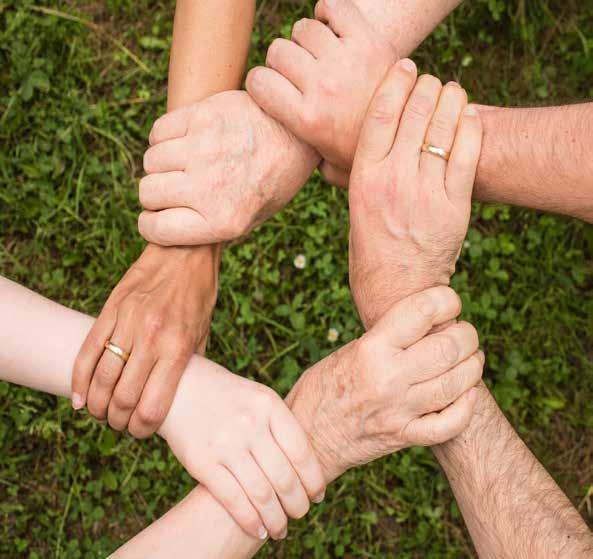
3 minute read
04
The Power of Philanthropy
Sarah McKenna Barry looks at how corporate philanthropy has played a central role in establishing Ireland as a leader in LGBTQ+ rights .
Advertisement
In recent history, Ireland has seen some phenomenal social changes, particularly with regards to LGBTQ+ rights . Within the space of 22 years, the country decriminalised same-sex activity, outlawed discrimination on the basis of sexual orientation, introduced civil partnership, legalised same-sex marriage and introduced the Gender Recognition Act of 2015 .
These changes would not have come about without the vital work of LGBTQ+ organisations and the donors that fund them .
Corporate philanthropy helped lay the foundation for marriage equality . Between 2004 and 2013, Atlantic Philanthropies invested over $63 million into four LGBTQ+ organisations: the Gay and Lesbian Equality Network (GLEN), Marriage Equality, Transgender Equality Network Ireland (TENI) and LGBT Diversity . The multi-year investment enabled these organisations to carry out essential work in their sector, which led to impactful changes for the LGBTQ+ community . With the support of their donors, the grantees were successful in passing the 2010 Civil Partnership Act and establishing the Gender Recognition Advisory Group .
Moreover, Atlantic Philanthropies allowed these groups to lobby for improved public policy surrounding LGBTQ+ issues in a number of areas, including education and health .
The Community Foundation for Ireland has also been instrumental in providing financial support to LGBTQ+ organisations . Since their establishment in 2000, The Community Foundation has provided over €1 million to LGBTQ+ groups through their own fund, and through the funds of their donors . Over the years, BeLonG To Youth Service, the Rainbow Support Service, the National LGBT Federation (NXF) and TransParenCi have been among the grantees to benefit from the generosity of philanthropists through the Foundation .
The impact of this philanthropy cannot be understated, particularly in regard to pushing for advocacy for the LGBTQ+ community . For instance, The Community Foundation for Ireland provided significant support for marriage equality in the lead up to, and throughout, the 2015 same-sex marriage referendum . Following the resounding victory, a statement on behalf of the groups involved in the campaign - Yes Equality, GLEN, Marriage Equality and the Irish Council of Civil Liberties - recognised their impact, saying, “Thank you to everyone at The Community Foundation for Ireland for your unstinting and inspiring support for the campaign, and indeed your support over many years of all our organisations to achieve this startling outcome!”
Philanthropy also plays a pivotal role in implementing support systems and initiatives for members of Ireland’s LGBTQ+ community . For instance, the first ever National Gay, Lesbian, Bisexual and Transgender Helpline received significant funding from the CFI during its establishment . Corporate philanthropy equips organisations with the means to providing that much-needed support . Indeed, the community benefits of giving back are clear, but there is a strong business case for corporate philanthropy too . A report by C Smith published in The Harvard Business Review found that companies who give back to their communities enjoy an array of benefits, including greater employee engagement, boosted customer loyalty and a stronger brand image . Interestingly, the study found that businesses that engage in corporate philanthropy also tend to experience increased innovation and growth .
Corporate philanthropy allows advocates to do their best work . While a number of milestones for the community have been made in recent history, LGBTQ+ groups provide unwavering support to members of the LGBTQ+ community every single day . To sustain this vital work, philanthropists continue to provide essential funding to their grantees as these organisations make Ireland a more inclusive and equal society .










